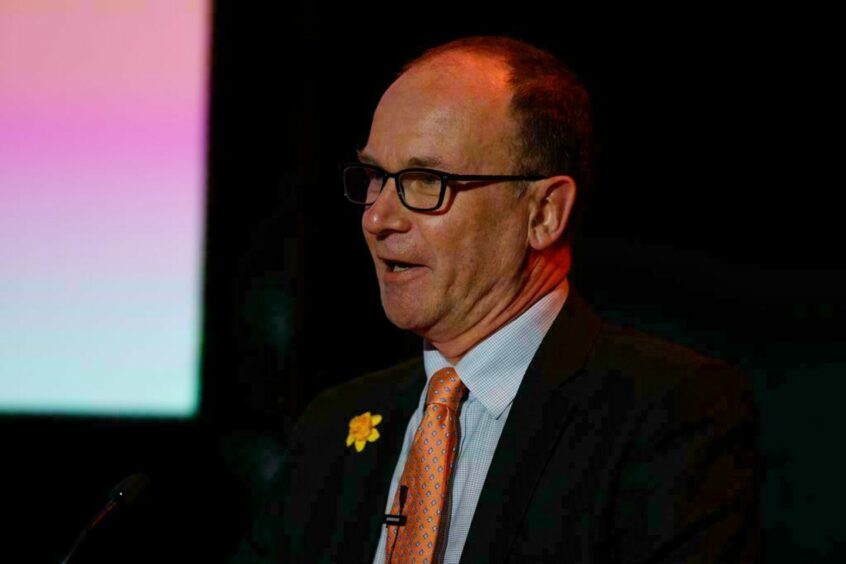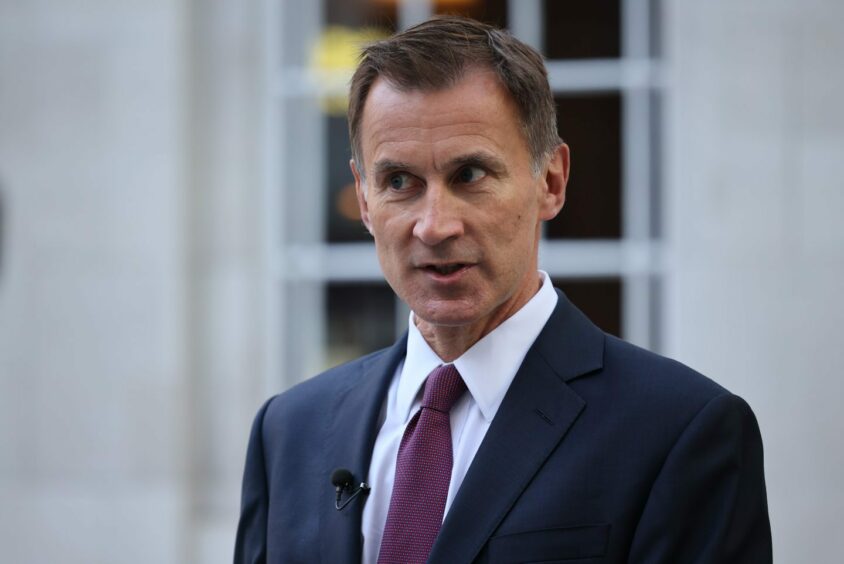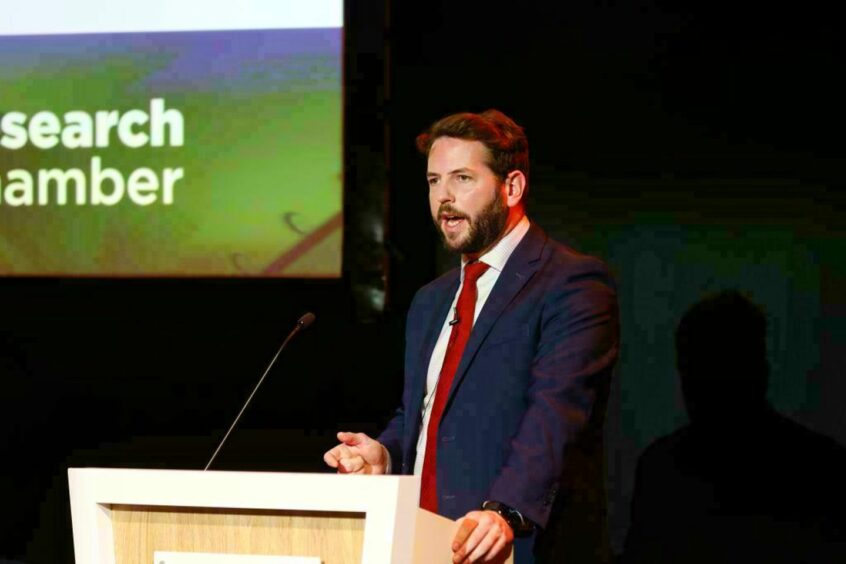
A financial expert says the oil and gas industry is up against it to deliver for the UK against the backdrop of a growing windfall tax.
Office senior partner for KPMG in Aberdeen, Martin Findlay told an event in Aberdeen on Tuesday that bolstering energy security and delivering a transition is “a lot to achieve with a high tax rate”.
From a “corporate perspective” it would be “much better” if firms were able to face up to the challenges of the day with lower levies and less volatility.
But Mr Findlay acknowledged that it is “inevitable” that industry will remain a target for the Treasury, in view of the government’s deficit and the scale of profits oil and gas companies have reported in recent months.
Speaking at an Aberdeen and Grampian Chamber of Commerce business breakfast, he said: “It’s odd to think that at this presentation six months ago, we didn’t even have the first windfall tax. We were worrying that it might come around the corner, and it was front page news the next day.
“It brought fiscal uncertainty, at a time when there was focus on energy security and making the UK a successful basin, as well as pushing oil and gas to spent to meet its net zero ambitions.”
Doubling down on windfall tax
Having ruled out an oil and gas windfall tax numerous times, in May the then-chancellor, Rishi Sunak, eventually caved and implemented the energy profits levy (epl).
It added 25% to the headline rate of tax the North Sea producers pay, taking it to 65%, with proceeds going to help families struggling with the cost-of-living.
An investment allowance, meaning firms could claw back money based on how much they spent, was included to cushion the blow.
Since then, many oil and gas companies have continued to report bumper takings, and it is widely expected Westminster will swoop again – potentially increasing the EPL by as much as 10% – when the autumn budget is unveiled on Thursday.
Mr Findlay said: “It does look very likely that we will see an extension to the oil and gas windfall tax, and possibly a reduction in investment allowance on Thursday, as well as a new tax for electricity generators.
“The government is focussing on balancing its books, and the latest mantra seems to be that everyone and everything will be paying more tax. It is just inevitable that oil and gas will remain a target.”
Mr Findlay was speaking at the launch of AGCC’s latest energy transition survey, published in partnership with KPMG and ETZ Ltd.
Instability in Westminster and oscillation in Holyrood
It found that half of companies working in the sector regard the current political and regulatory environment as a barrier to reaching net zero.
That is a jump of 24% on a year ago, and follows a period of unrest, upheaval and U-turns in Westminster.
Fergus Mutch, policy adviser at AGCC, told attendees: “Political instability is now the biggest threat to the UK’s net zero ambitions. Three prime ministers, three chancellors, all with very different policy directions, in this year along. A blunt instrument windfall tax was ruled out, ruled in, imposed, and then will most likely be double downed upon this week, with little in its design to actually incentivise energy transition.
“Holyrood doesn’t get off the hook either. While it doesn’t hold the big levers, such as licensing and regulation of the sector, the oscillation from the Scottish Government one week to the next over whether oil and gas is a critical part of our energy mix or not, has weakened firm’s investment plans. We know that for a fact.”
Recommended for you


 © Supplied by Derek Ironside / New
© Supplied by Derek Ironside / New © George Cracknell Wright/LNP/Shut
© George Cracknell Wright/LNP/Shut © Supplied by Derek Ironside / New
© Supplied by Derek Ironside / New